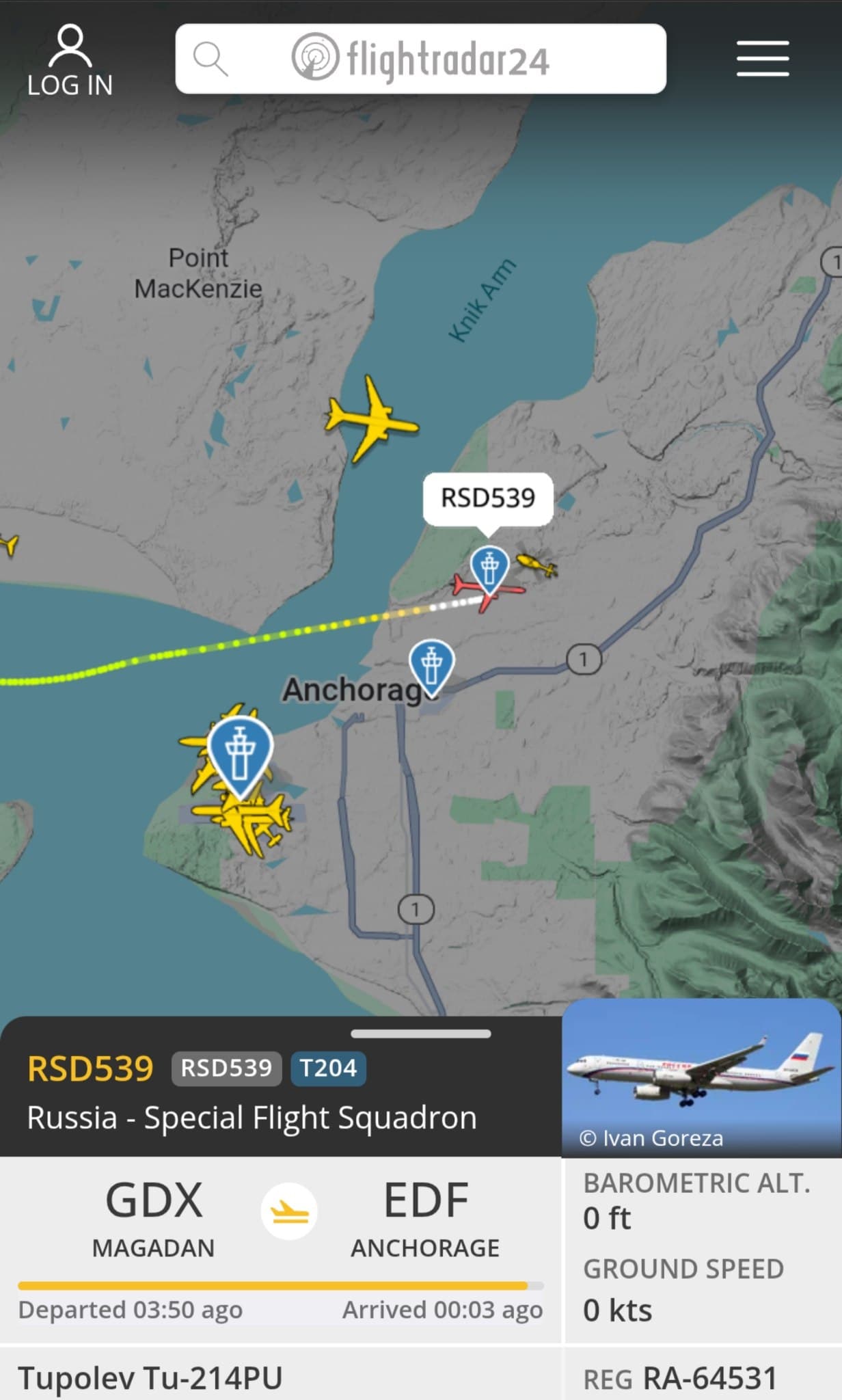Putin Arrives in Anchorage, Sparking Global Tensions and Diplomatic Concerns
In a surprising move that has captured international attention, Russian President Vladimir Putin has landed in Anchorage, Alaska, igniting a flurry of speculation regarding the implications of this visit. The arrival, which took place early on Thursday morning, coincides with heightened geopolitical tensions, particularly in light of ongoing conflicts in Ukraine and the Middle East. This visit is not only significant for U.S.-Russia relations but also raises questions about the broader geopolitical landscape.
Background & Context
Putin"s arrival in the United States marks a pivotal moment in a relationship that has been fraught with suspicion and hostility in recent years. Following a series of sanctions imposed by the West over Russia"s actions in Ukraine, including the annexation of Crimea and support for separatists, both nations have struggled to find common ground. The visit comes just days before a highly anticipated press conference where Putin is expected to address both domestic and international issues, including the ongoing conflict in Ukraine and Russia"s military involvement in Syria.
This visit is particularly notable given the historical context of U.S.-Russia relations. Since the end of the Cold War, both countries have oscillated between cooperation and confrontation, with recent years leaning heavily towards the latter. The backdrop of Putin"s Alaska visit is further complicated by the upcoming U.S. presidential election and the potential implications for U.S. foreign policy, particularly if Donald Trump emerges as a key figure in negotiations with the Russian leader.
Key Developments
As reported, Putin"s arrival in Anchorage has already sparked protests and demonstrations, with local activists demanding peace talks regarding the situation in Ukraine. The protests reflect growing frustration among Alaskans and broader American society over the perceived lack of diplomatic engagement between the U.S. and Russia. Many activists are calling for an end to military engagements and a renewed focus on diplomacy. This public sentiment may influence U.S. policymakers as they prepare for the upcoming press conference.
In a statement released prior to his departure, Putin emphasized the importance of dialogue, stating, "We must engage in discussions that lead to stability and peace in our regions." His comments suggest a willingness to negotiate, but skepticism remains among U.S. officials and experts who have observed past instances of diplomatic overtures that failed to yield substantial results. Analysts are closely monitoring the situation, especially in light of recent developments that have led to increased tensions between the two nations.
Broader Impact
The implications of Putin"s visit extend beyond U.S.-Russia relations. Experts suggest that this meeting could have ripple effects throughout Europe and Asia, particularly regarding NATO"s stance on Russian aggression. As tensions rise in the Baltic region and Eastern Europe, allied nations are watching closely to see how the U.S. will respond to Putin"s overtures. The situation is further complicated by ongoing conflicts in the Middle East, where Russia"s military presence has been a point of contention for Western nations.
In addition, the geopolitical landscape is shaped by the recent Israeli airstrikes in Lebanon, which target Hezbollah strongholds and underscore the volatility in the region. Analysts argue that U.S. engagement with Russia could either stabilize or exacerbate tensions in the Middle East, depending on the outcomes of discussions between the two leaders. As previously reported, the international community remains on high alert as these developments unfold.
What"s Next
As the world awaits the results of the upcoming press conference, the focus will be on both the tone and substance of the discussions between Putin and U.S. officials. Will this meeting pave the way for renewed dialogue, or will it further entrench existing divisions? The potential for breakthrough agreements on critical issues such as arms control, cybersecurity, and regional conflicts looms large, yet skepticism persists.
In the days leading up to the press conference, analysts will be scrutinizing every public statement and move made by both parties. The implications of this meeting are likely to reverberate across various sectors, from international trade to military alliances. With protests underway in Anchorage and diplomatic tensions simmering, the stakes have never been higher for both nations and the global community at large.


![[Video] Heavy clashes and gunfire reported in Baghdad, Iraq](/_next/image?url=%2Fapi%2Fimage%2Fthumbnails%2Fthumbnail-1768342239932-848qsh-thumbnail.jpg&w=3840&q=75)




![[Video] Gunfire between Iraqi security forces and Sadr militias in Baghdad](/_next/image?url=%2Fapi%2Fimage%2Fthumbnails%2Fthumbnail-1768343508874-4redb-thumbnail.jpg&w=3840&q=75)
